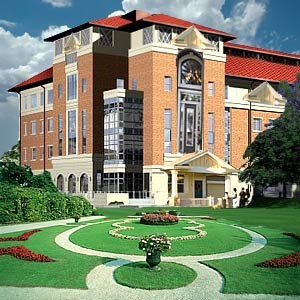Biomedical Engineering Jobs
Biomedical engineer job was rated as one of the best careers out of 50 careers in 2011 by US News & World Report. Biomedical engineering can be defined as a diverse field of engineering that integrates science, medicine and mathematics to solve biological and medical problems.
The objective is to make the world a healthier place to live. Biomedical engineers require solid foundation in traditional engineering disciplines of electrical, mechanical and chemical engineering. In 2014, there were about 22100 bio-medical engineers employed in industries such as medical equipment manufacturing, pharmaceutical and medicine manufacturing, hospitals and research in life sciences.
What do biomedical engineers do?
Biomedical engineers combine biology, medicine and engineering and with the use of advanced knowledge of engineering and science solve medical and health problems. They are designers who can create massive MRI machines as well as microscopic machines used in surgical procedures. Biomedical engineers are researchers themselves, who develop prostheses, evaluate the use of artificial organs and improve instrumentation in hospitals, nursing homes and clinics.
Education and training for biomedical engineering jobs
A bachelor's degree is the entry level requirement. Biomedical engineers often combine formal training in mechanical and electronics engineering with biomedical training so as to operate confidently in the field. In fact, many biomedical engineers hold a masters degree even at entry-level.
There are selected schools that provide undergraduate training in biomedical engineering and typical coursework which includes neuroengineering fundamentals, biofluid mechanics and engineering electrophysiology, diagnostic imaging physics and drug design. The courses cover design and delivery in these systems. Students can choose any suitable elective in addition to the core courses.
Algebra, geometry and advanced algebra, trigonometry, pre calculus, computer programming are given to the students, an advantage they should choose to enjoy. Most programs also adopt courses in biology, physiology, biochemistry, organic and inorganic chemistry, bio materials, thermodynamics and engineering design.
Most students are imparted laboratory experience with hands-on training and these biomedical engineers could assume entry level positions in hospitals, or sales position in biotechnology companies.
While a bachelor's degree in biomedical engineering could place you in a related engineering field, Masters or Doctoral degree has a greater scope and provides opportunities in research and development in private and government departments. There is also scope to enhance your education in business management or health care technology. BIOMEMS, genomics, Micro and nanotechnology, robotics in surgery and Proteomics, telemedicine are some of the developing areas in biomedical engineering.
Employment opportunities in biomedical engineering
It seems a natural choice for biomedical engineers to be employed in medical equipment and manufacturing of supplies. Pharmaceutical and medicine manufacturing are other salient fields where biomedical engineers are sought after. Scientific and research development services and general medicine and surgical hospitals also offer employment scope for biomedical engineers.
The Bureau of Labor Statistics (BLS) in the US projects about 21 % growth for biomedical engineers with an estimated 3000 new careers created in the industry through 2016. As the demand for sophisticated medical devices is on the rise, so too are the predicted employment prospects for biomedical engineers.
Remuneration for biomedical engineers
According to BLS, the mean annual earnings of a biomedical engineer was $86,950 in May 2014. Earnings can go up to $ 97,000 for biomedical engineers engaged in scientific research and development.
Demand for biomedical engineering sector
There is tremendous demand for quality medical services accompanied by better equipment designed by biomedical engineers. This is due to burgeoning of health issues in recent times and aging of population with increase in life span. Increased procedures, easy servicing and maintenance, advanced medical equipment and procedures and increasing hospitals and clinics have been causal for continuous demand for biomedical engineers. According to a Labor department report, biomedical engineers are expected to grow by a whopping 72%, adding nearly 12000 jobs between 2008 and 2018.
Biomedical engineers work culture
Biomedical engineers create specialized products and save lives. They make patients safer and comfortable. They assist scientists, chemists and others in research to develop and evaluate medical systems and patients. Biomedical engineers bridge the gap between medicine and engineering. Attention to detail is yet another essential skill along with communication and team ability for a biomedical engineer.
An associate Professor in the Carnegie Mellon University and member of Biomedical Engineering Society board of directors - Philip Leduc, opines, 'Since this is such a new field, it's constantly being redefined. Don't limit yourself when pursuing jobs in this field. Find out your real passion first, there's so much biomedical engineers can do.'
There is a huge demand for biomedical engineers' world over. As clinical engineers who monitor and maintain the data bases of instrumentation, as rehabilitation engineers who develop hardware and software computer adaptation and as orthopedic engineers who improve the quality of life of patients - there are global opportunities that await biomedical engineers across the world. An increasing demand for cost effective medical practice should boost the demand of biomedical engineers.
Top of the Page: Biomedical Engineering Jobs

 Career Development
Career DevelopmentWoman in the Workforce - Work ethic, work spirit and latest happenings on the work scene ...
Career Choices for Women - Career options, interview guides and tips ...
Women Entrepreneur Qualities - Be your own boss...
Achieving Work Life Balance - Delicate balance ...
Pre Hire Assessment - Measuring suitability ...
Ability and Aptitude Tests - Fit for the job ...
Internship Application Tips - Further your prospects ...
Free Career Aptitude Test - Unique insight into your talents ...
Resume Builder - Resume tips to climb the career ladder ...
Employee Satisfaction Survey - Read the pulse of an organization ...
Gini Coefficient - Gender Income Equality ...
Career Planning
 Managing Work Stress - Juggling time and responsibilities ...
Managing Work Stress - Juggling time and responsibilities ...Midlife Career Change - Crossroads of life ...
Career Assessment - Assess your skills to choose the right career ...
Career Counseling - How can a career counselor help you? ...
IQ Score - Tests of intelligence and ability ...
Career Aptitude Test - Provide unique insight into your talents and skills ...
Free Psychometric Tests - Make right hiring decisions ...
Spatial Reasoning Tests - Visualize complex shapes ...
Performance Appraisal - Assessment for future performance or potential ...
Telecommuting - Your virtual office ...
Career Opportunity
 Biomedical Engineering Jobs - Integrate medicine and engineering ...
Biomedical Engineering Jobs - Integrate medicine and engineering ...Actuary Jobs - Evaluating future risk ...
Market Research Analyst - Researching Market Potential ...
Family Counselor - Lend a patient ear ...
Career in Botany - Explore plant kingdom ...
Pet Sitting Service - Love for animals ...
Screenplay Writing - Weaving movie magic ...
Foreign Language Interpreter - Say it right ...
Psychology Degree Career - Understanding people ...
School Psychologist Career - Collaborate with educators and parents ...
Museum Curator - Appreciation of history, environment, arts ...
Graphic Arts Career - Visualize, arrange and attract ...
Animal Care Career - Far from the routine ...
Secretarial career - Office professional ...
Investment Banker - Ample growth prospects ...
Registered Dietitian - Address nutritional needs ...
Landscape Architect - Create aesthetic surroundings ...
Retailing Management - Work with merchandizing systems ...
Gemology Career - Eye for detail ...
Summer Jobs for 13 year olds - Learn and earn ...
Human Resources Jobs - Core business driver...
Summer Teaching Jobs - Passion for teaching ...
Summer Internship Program - Valuable work experience ...
Home Caregiver - Assisted living ...
Airline Careers - Take a peek into high flying careers ...
Fitness Career - Fitness is big business ...
Chiropractor - Treatment by hand ...
Interior Design Career Guide - - What makes a successful interior decorator? ...
Nursing Career Guide - Aspects of the nursing vocation ...
Real Estate Career Opportunity - Careers in land and property management ...
Newborn Photography - Capture the innocence ...
Massage Therapist Jobs - Knead stressed muscles ...
Recreational Therapist - Promote wellness through recreational activity ...
Hypnotherapist Job - Work on the subconscious ...
Ecommerce Consultant - Benefit from an online presence ...
Franchise Consultant - Dream of your own business but don't know where to start ...
Online Career Guide
 Freelance Writing Opportunity - Provide life to words ...
Freelance Writing Opportunity - Provide life to words ...Online Tutoring Services - Learn from home ...
Effective Web Content Writing - Writing content for impact ...
Proofreading Services - Checking content for errors ...
Telemarketing Services - Talk your way through ...
Transcription Services - Highly accurate and productive ...
Hospitality Career
Culinary Art School - Whip up a great career ...
Cruise Ship Jobs - Keeping up with increasing needs ...
Event Management Jobs - Coordinating many agencies ...
Bartending Job - Non-traditional career ...
Hospitality Career - Serving people and enjoying it ...
Restaurant Management - Another management career ...
Beauty Career
 Professional Makeup Artist - Transform your look ...
Professional Makeup Artist - Transform your look ...Wedding Coordinator - An integral part of important function ...
Hair Stylist - Get your clients to look and feel beautiful ...
Beauty Makeover Consultant - Providing a makeover ...
Fashion Design Career - Flair for style ...
Modeling Career - Find out what it takes to be a model ...
Legal Career
 Loan Officer Training - Assist and guide loan applicants ...
Loan Officer Training - Assist and guide loan applicants ...Fraud investment Lawyer - Securities litigation attorney ...
Law Enforcement Career - Competitive and interesting options ...
Top of the Page: Biomedical Engineering Jobs

